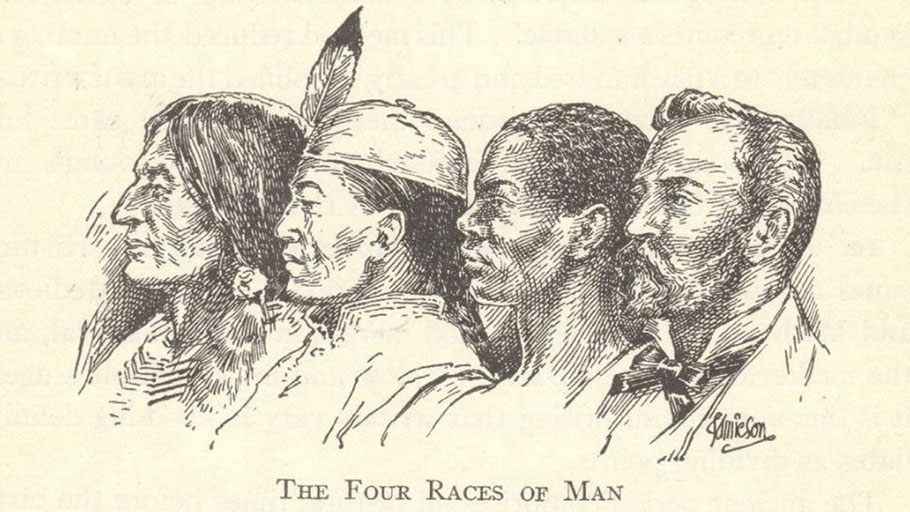“The white folks had sure brought their white to work with them that morning.” Chester Himes, If He Hollers Let Him Go.
On Shouting White Racial Slurs in Public
I am a white, middle class male professor at a big, public university, and every year I get up in front of a hundred and fifty to two hundred undergraduates in a class on the history of race in America and I ask them to shout white racial slurs at me. The results are usually disappointing.
First of all, everyone knows that saying anything overtly racist in front of strangers is totally taboo. So the inhibitions to participation in this insane activity are already pretty great. Even so, most of these kids are not new to conversations about race; the majority of them are students of color, including loads of junior college transfers, student parents, vets, and a smattering of white kids, mostly freshmen. Of course some are just scared of speaking in front of so many people, no matter what the topic.
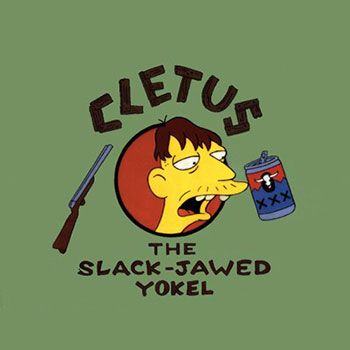
“Most folks’ll never eat a skunk / but then again some folks’ll / like…”
So I cajole a few of them into “Cracker” and “Red Neck.” We can usually get to “Hillbilly” or “Trailer Trash” or “White Trash,” possibly even “Peckerwood,” before folks recognize the “Cletus the slack-jawed yokel” pattern of class discrimination here.
The 60s era black nationalist terms come out next, usually from one of the all too few black male students in the room, sometime from a student athlete. “Honky!” This gets a chuckle from the class, after all, it is a funny word to say out loud. “Whitey” and its weak hip hop variant “Wigger” are voiced to more giggles. The black power aggression of “look out whitey” are only a memory of a failed black militancy that has lost its pinch.
Hispanic students find their way to “Gringo,” just as a student perhaps from Atlanta or Houston offers “Yankee.” Still other students give their own regional variant insult for white imperialists and tourists — such as “Haole.” From this we learn that race is defined by place, and that where you are white matters.
It is either a sign of their ongoing potency or proof of the decline in the category of ethnicity, but the old racial slurs for Italian, Irish, Greek, Jewish, Catholic, German, Polish, etc., never get heard. Is this silence because these groups are or are not white? Maybe these kids have never heard someone use the word “dago” before, apart from that Jewish guy in The Godfather?
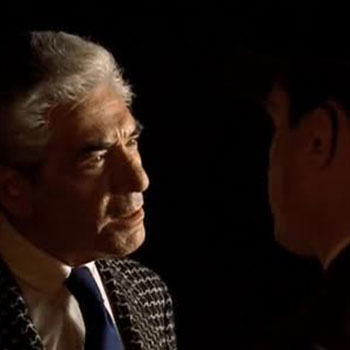
“So let me tell you something my kraut mick friend!”
The point of this sanctioned spewing of hate speech is that none of these words can hurt me. Because I am an individual. I can choose to not be offended, not to be affiliated with any group and rest assured in my sense of self.
White racial slurs are not common in our colorblind age because they don’t work on people who possess white privilege. When it does work, like “Red Neck” or “Cracker,” it has the power to engage a class politics that draws together people of color and urban, middle class whites (otherwise known as the Democratic party).
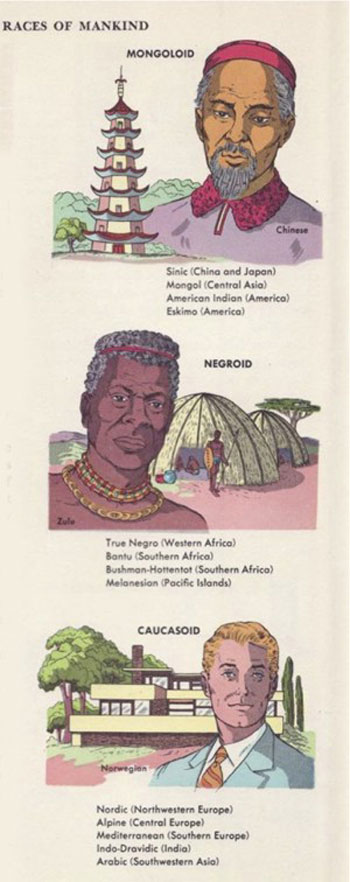
In this 1950s encyclopedia, Asians live in pagodas and wear pajamas, Blacks live in mud huts and wear chains, and White people live in mid-century modernist mansions and wear suits.
White privilege is the right of whites, and only whites, to be judged as individuals, to be treated as a unique self, possessed of all the rights and protections of citizenship. I am not a race, I am the unmarked subject. I am simply man, whereas you might be a black man, an asian woman, a disabled native man, a homosexual latina woman, and on and on the qualifiers of identification go. With each keyword added, so too does the burden of representation grow.
Sometimes the burden of representation is proudly shouldered, even celebrated. But more often this burden of representation becomes a dangerous, racist weight, crushing and unbearable. Michael Brown was killed in part because of this burden (the stereotype of black male criminality), and his body continues to carry this weight as the protests mount (the martyred symbol that black lives matter).
But white men are just people. Normal. Basic Humanity. We carry the absent mark which grants us the invisible power of white privilege. Everyone else gets some form of discrimination.
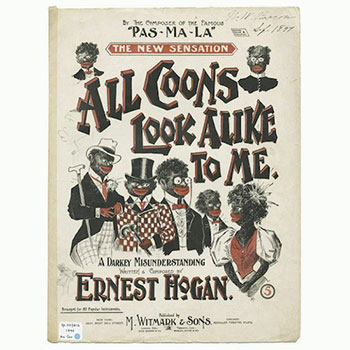
Tin Pan Alley Sheet Music, 1897
The words nigger, slope, spic, redskin and on and on and on, hurt because they both smear with dirt and deny human diversity. They work by including all members of an a-priori race within the same hated and debased categorization. “What do you call a black man with a PhD?” sez the old Klan joke book: “N——r.” That hurts for all sorts of reasons. It trumps class, achievement, intelligence, education and politics (i.e. respectability) with 19th century fictions of biological racism. Your skin, your blood and body are all that matters, the N-word says, and I hate you for it.
This is about when I run out of time and have to end class. As I am unplugging, a few of those white kids creep up to ask a good question: so what should we do? If we want to be more than just not racist, if we want to be actually anti-racist, then how should we act? How do we deal with the burden of a privilege we did not earn?
Now I gotta get to another class half-way across campus, so I don’t have time to tell them that so-called “liberal guilt” is not the answer and that empathy and solidarity are. I don’t have time to explain that learning to share anger at injustice is the start of a common conversation, and that they can learn how to recognize where privilege resides in their own lives by reading about and listening to the experiences of others who do not have it. But I gotta run, so I just say to them: “It’s a long argument, and an endless series of principled choices, but the short version is simply: don’t be a douchebag.”
***
A Useless, Sexist Tool
This may sound like shallow, even flip advice in the face of an important question. But I assure you it is not. It’s a hard-won and well-tested insight that came out of a spontaneous hypothesis using the multicultural classroom as laboratory.
“What about douchebag?” I asked the students, experimentally.
“Have any of you ever called some one black or brown or Asian a douchebag?” A silence descended on the lecture hall as wheels began to spin. “How ‘bout women or gay folks?” And with each refining question — “Ever call a poor person a douchebag?” — their widening eyes became knowing nods, nods became spoken agreement, and the scattered “yes” gathered into a room of collectively blown minds. Including mine. Yes, it turns out, only rich, white heterosexist men are douchebags.
We had just contradicted the point of the racial slurs discussion, but that was lost in the rush of discovery. Here, hiding in plain view, was a viable white male racial slur. Because while “cracker” and “honky” don’t hurt me, I would totally be offended if someone called me a douchebag. And I would need some sort of definition against which to launch my personal defense.
So why had none of us recognized this before? Why did this slur actually work?
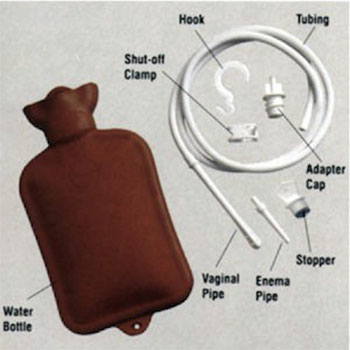 The douchebag is, quite literally, a useless sexist tool. And that is why it makes for such an attractive, even overused insult. But what does the human douchebag really look like? Why do we call him that and what do we hate about the douchebag?
The douchebag is, quite literally, a useless sexist tool. And that is why it makes for such an attractive, even overused insult. But what does the human douchebag really look like? Why do we call him that and what do we hate about the douchebag?
The douchebag is someone — overwhelmingly white, rich, heterosexual males — who insists upon, nay, demand their white male privilege in every possible set and setting.
The douchebag is equally douchey (that’s the adjectival version of the term) in public as in private. He is a douchebag waiting in line for coffee as well as in the bedroom. This definition marks him, like the atavistic, dusty rubber douchebags of our grandmothers’ generation, as a useless, sexist tool. Armed with this refined definition, I believe the term “douchebag” is the white racial slur we have all been waiting for. We have only to realize this. White privilege itself has blinded us to the true nature of the douchebag’s identity. But it’s been there all along.
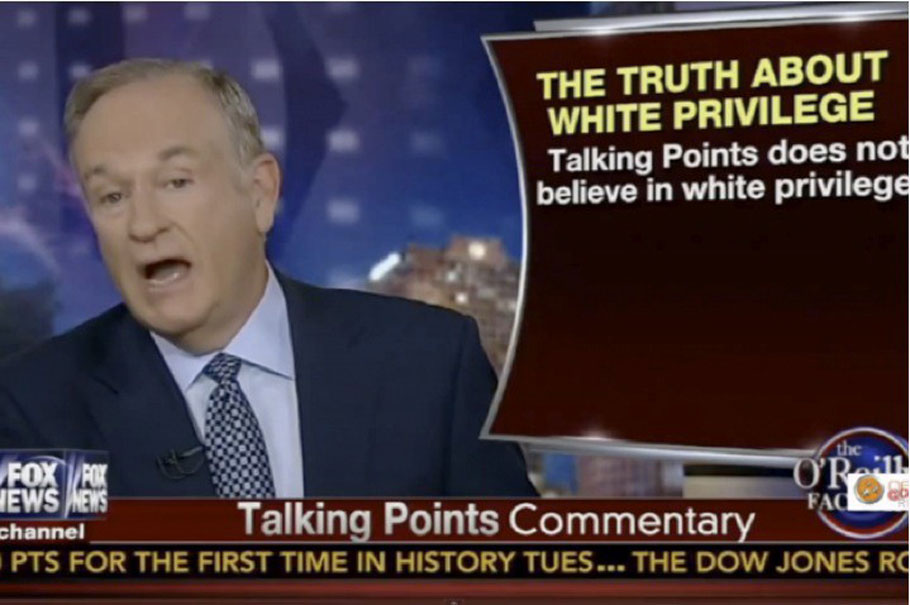
Fox News, August 14, 2014.
The precise race, class and gender position of the douchebag marks this identity as a specific subset of the asshole, another identity on the rise in the twenty-first century. The asshole — as brilliantly defined by Ta-Nehisi Coates — is someone who insists that all social encounters occur on their terms, as in, “hey that person over there with the google glass is an asshole!” (Glasshole! Get it?) But anyone can be an asshole, after all we all have one.
The douchebag is always a white guy. But he is more than that. The douchebag is the demanding 1%, and the far more numerically significant class of heterosexist men who ape and aspire to be them. Wall Street guys are douchebags to be sure, but so is anyone looking to cash in on his white privilege.
This means that non-white people can be – or worse yet – can aspire to be douchebags by claiming wealthy white male privileges for themselves. Whiteness, like the douchebag, has a form that is not dependent upon biological notions of race, but is rather shaped by our history and by our actions. And if men of color can strive to live as douchebags, then it is also true that white men can choose not to be douchebags. We can refuse to insist. It is a choice that all men, but especially white men, have to make.
This narrowness of categorization — perhaps unique in America’s rich history of racial and sexual slurs — is what makes the word douchebag such a potentially useful political tool.
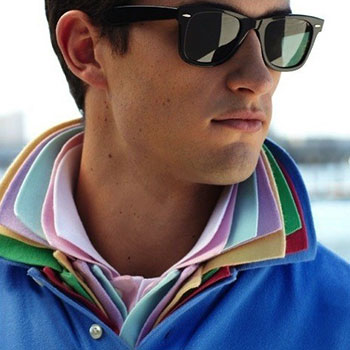
8 Popped Collars
There is a history of the douchebag as a white racial slur, stretching from when the word was first flung across a D&D game in 1982’s ET to the recent, and all too premature, assessment by Gawker and Jezebel that the term has “jumped the shark.” Before the douchebag there was the suburban “collar popping” preppy and the urban yuppie. Now there is the frat boy, the metrosexual, the mansplainer, the pick-up artists, the dude, the bro, most of the men you meet in Las Vegas. But really, they are all just douchebags.
***
Douchebag Politics
So it turns out that the term douchebag is a great deal more, and a great deal more precise, than what Dan Harmon considers merely “a more potent way to call someone a jerk.”
It is an inescapable fact that 99% of those we hurl the term at are rich white men or those who aspire to be and mimic their ways. Only after great debate can we judge if someone who is black or gay or a female or poor can be called a douchebag.
Adam Levine, like Ryan Lochte before him, is so commonly labeled as a douchebag in social media that in a recent GQ celebrity profile he offered up his own three part definition of the douchebag, coupled by a point by point rebuttal as to why he should not be counted amongst the category he so defined. The douchebag, sez Levine, “lacks self-awareness,” is “arrogant” (“I’m cocky,” he reports, “Its different. Its playful.”) And, sez Levine, the douchebag is “insecure.” Levine wanted GQ to know that though he dislikes the papparazzi he is plenty confident enough to do nude magazine shots with his supermodel fiance. But what he is, is a rich white heterosexual male who enjoys flaunting his wealth, white body and sex life in public, a master of the pop universe that no one can say no to, even if he did have acne as a kid. Yea, this guy is totally not a douchebag.
Of course, playing douchebag / not a douchebag is one of social media’s most favorite games, so let’s try it with our new definition based on white privilege:
Gordon “greed is good” Gecko is lord high Douchebag, and Charlie Sheen is his first born and reigning king douchebag.
There are billionaire CEO douchebags like Larry Ellison and Donald Trump, and wage slave douchebags that work as lifeguards, bartenders and in sporting good stores but aspire to be billionaires. Tech, finance and consulting douchebags predominate in the category, but there are also high concentrations of douchebags in real estate, mid-level management, gamers, fitness-types and television entertainment.
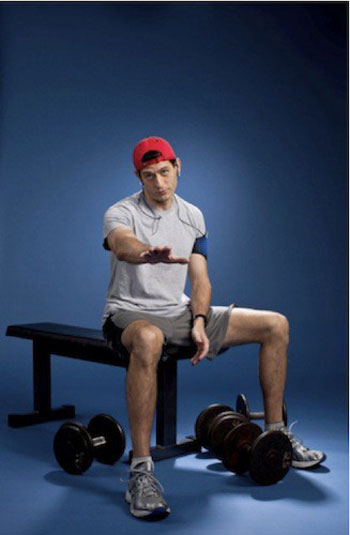
Representative Paul Ryan (R-WI)
Mitt Romney and Paul Ryanare both douchebags, which is part of why they lost. Joe Biden and Bill de Blasio are not douchebags, which is part of why they won.
Wall Street and Wolf of Wall Street are the best movies about the douchebag. Steven Colbert and his entitled, uninformed, self-promoting, and colorblind persona is its most thorough parody. Fox News offers us the spectacle of an entire television network composed of douchebags pushing a douchebag’s view of the world.
If we believe Mitt Romney (following the US Supreme Court since at least 1886) that “corporations are people,” then most companies, in placing profits ahead of people and the planet, are acting like entitled douchebags. The Southern Pacific Railroad and the Pinkertons were certainly the douchebags of a corporate yesteryear, just as Monsanto, Big Pharma, Walmart, Amazon.com and most of the rest of Silicon Valley are today’s banner waving corporate douchebags. Indeed, if Wall Street were a corporate person it would be the biggest douchebag of all time.
Pro sports is a dense field of douchebaggery. Lance Armstrong, Roger Goodell, the Washington Redskins and the Duke Lacrosse Team are douchebags, but Chris Kluwe, Leo Messi and FC Barcelona are not. (White male athletes who are not douchebags are few and far between).
Anthony Bourdain is not a douchebag, but Guy Fieri is (like that needed saying?)
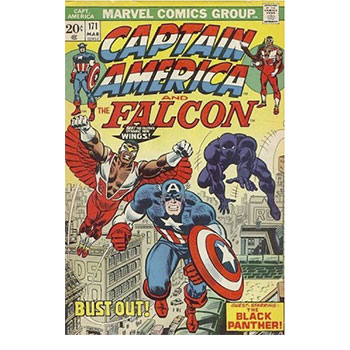
Cap had at least two black friends back in 1973.
Sam Spade is not a douchebag but John Wayne sure was. Captain Kirk — in every edition — is a douchebag, but Spock, Picard and Riker are not (though Riker sometimes tries to be). Peter Parker is not a douchebag, neither is Clark Kent. But Bruce Wayne and Tony Stark sure are. Cyclops is a douchebag whereas Magneto is not. Hal Jordan is a douchebag, but Captain America (perhaps surprisingly) is not.
And if we needed further proof that the douchebag is a social construction rather than some form of white male essentialism, I give you the paradox of Michael J. Fox: Alex P. Keaton is a douchebag, but Marty McFly is not.
***
Beware the Killer Douchebag
But this is not all fun and games. Douchebags can be deadly, especially to women. And learning to recognize them and avoid them can be a word of advice to save a life.
At their most extreme, the douchebag can be someone like Patrick Bateman from American Psycho — a psychotic killer who uses the mask of white male wealth and privilege to seduce victims and elude detection. But this type does not just exist in fiction.
On college campuses, white (i.e. segregated) frats are pestilential breeding grounds for alcohol poisoning, drug abuse, sexual assault, and white male privilege, and if they cannot be dismantled or removed from university campuses, then they should be strenuously avoided by all but campus police and “Take Back the Night” marches.

Elliot Rodger before his rampage near UC Santa Barbara in May 2014.
The rampaging, mass murdering douchebag is a growing problem in America right now. Douchebags with guns — no less so than rednecks with guns — cause untold sorrow across the land. Take that young, rich and depressed douchebag who shot up Santa Barbara this past May because the girls didn’t throw themselves at him and his flashy car. “I do not know why you girls aren’t attracted to me,” he said in his creepiest youtube manifesto, “but I will punish you all for it.”
It reminds us that while we can enjoy laughing at the douchebag on-line, we need never forget that these rampaging white males are not just a random assortment of crazy loners, but that they often act violently out of a sense of racist and sexist entitlement that renders them the enemies of humanity.
There have been dangerous douchebags throughout history. When Thomas Jefferson slipped into the slave quarters at night he became our nation’s douchebag founding father. The southern plantation aristocracy were probably the most powerful douchebags in American history, and the Civil War was fought to suppress them and win human rights for the enslaved. Over the next century and a half these defeated douchebags transformed themselves into the Red Neck / Douchebag coalition that runs the Republican party today. Though it was not that long ago, the regime of George W. Bush, Donald Rumsfeld and Dick Cheney should remind us all of the threats to democracy and human rights when douchebags come to power. They will steal an election, bomb your country and shoot you in the face, and then expect you to apologize to them.
***
“Some Emotional Need”: The Medical History of the Douchebag
But there is a history beyond this history, a medical history that provides the unlikely background to this character type.

Vintage, explanatory advertisement for feminine hygiene douche, 1900.
In surveying the medical literature, one finds that the douche bag — a vulcanized rubber appliance like a hot water bottle attached to a rubber tube or hose — had a wide range of useful applications for doctors and nurses. In a field hospital, a douchebag can be used to wash out wounds, and in 1943, the American Journal of Nursing gave the best ever reason to use a douchebag: to wash out one’s eyes in the event of a gas attack. “Douchebag” simultaneously appears in the linguistics literature in 1946 as military slang for a misfit, someone “maladjusted to military life.” Maybe this failed soldier just needed to wash out his eyes?
In 1956, Dr. Oscar Bourgeault wrote on the “Feminine Hygiene Question” in the American Journal of Nursing, telling nurses to advise their patients that if they think they need to douche, the answer “usually is don’t.” Dr Bourgeault’s advice grew out of a felt need for medical professionals to challenge the widespread advertisements in the era of the Feminine Mystique threatening women with the loss of “the precious air of romance” with their husbands “for lack of the intimate daintiness dependent on effective douching.” The advertizer’s solution was — believe it or not — douching with Lysol disinfectant to “destroy germs and odors, to give a fresh, clean and wholesome feeling” and “restore every woman’s confidence in her power to please.”
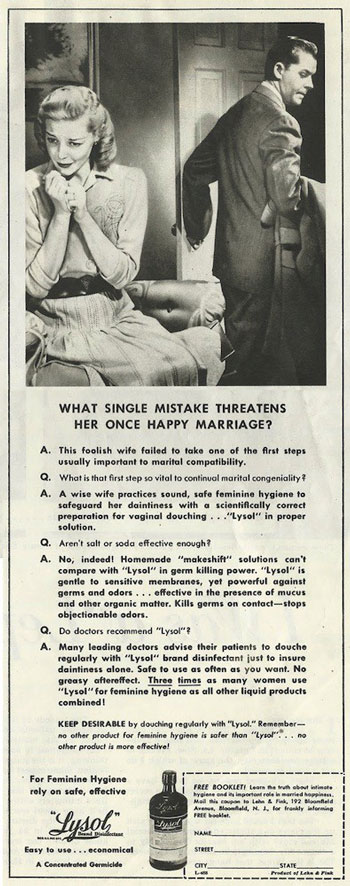
“This foolish wife”: Lysol douche ad, 1950s.
Even in the 1950s, Dr. Bourgeault can’t agree with this nonsense. Douching was part of the medical profession for years, he explains, but it only developed a mass usage beginning in 1900 when a Boston physician claimed that vaginal douching was a good form of birth control. As Margaret Sanger and Emma Goldman learned the hard way, discussing birth control in public was a crime in this era, and this particular doctor was hounded out of the profession for violating public decency. Nevertheless, the rumor of an accessible and discreet form of birth control, especially for middle class women, set off a popular wave of usage as word spread “via the grape vine, back fence and sewing circle.”
Not only is douching ineffective as a method of birth control, but it is generally unnecessary. Nevertheless, Dr. Bourgault concludes that “douches are unnecessary for women — maiden, wife or mother,” and that women who feel unclean without their daily douche are serving some “emotional need.”
If disgust and ignorance about the functioning of your own reproductive organs counts as an “emotional need” then the anti-feminist logic of the device should be apparent to us.
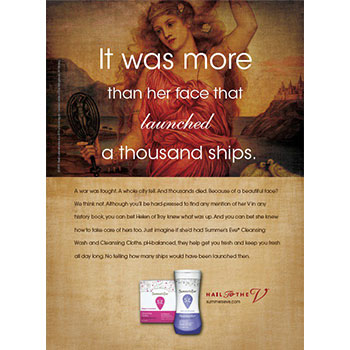
Just ask Helen of Troy: Sexuality is Feminine Empowerment
Of course, in today’s American Journal of Nursing, the “usually” in the “usually don’t” claim has been unequivocally removed. Writing in 2004, Dr Mary Ann Iannachione states it clearly, “douching is unnecessary and carries inherent risks… leaving women at greater risk of upper and lower vaginal tract infections.” In spite of the new effort to rebrand this ancient anti-feminism with an new ad campaign that links women’s empowerment to their sexuality (“Hail to the V!”), it remains a fact that human genitalia, by virtue of its location on our bodies, gives off distinctive odors. Yet why must women alone attend to and be shamed by this funk? Douching is not only an anti-feminist practice pushed by male corporations on women using shame and insecurity as a weapon, but it is almost certainly dangerous to a woman’s health. And therein we find the link between the medical appliance, the outdated practice of feminine hygiene, and the men we recognize today as “douchebags.” They are both, it bears repeating, useless, sexist tools.
***
Douchebag Dialectics, or, an aside on the Hipster
As far as white identities go, the douchebag stands in opposition to another growing white identity that, I believe, is getting a bad rap: the Hipster. We may be familiar with the personal style of the hipster, but in terms of their social position, the hipster represents a distinct generational / economic class of the over-educated and under-employed. From this position, on the cool edge of the class division, the hipster adopts an ironic stance towards white privilege. Rather than affect the corporate privilege position of the douchebag, the hipster adopts the ethos of craft labor, whether digital or manual, productive or service, while appropriating the identifying self markings (tattoos, piercings, beards, inexplicably tight pants, track bikes, etc.) of those communities traditionally ostracized by middle class and elite white communities (criminals, bohemians, sailors, lumberjacks, miners, immigrants, homosexuals, bike messengers etc). The hipster not only rejects her privilege through the strategic use of lip piercings and neck tattoos, but she stands with sneering disdain at the world’s underutilization of her own cultural capital.
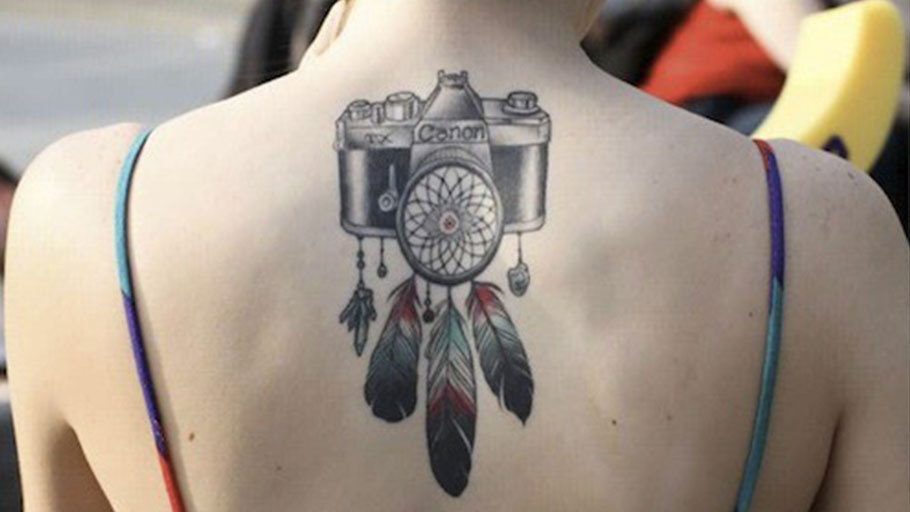
Hipster Racism: the vintage SLR and Indian dream catcher
While the hipster’s “ironic racism” can be the subject of justifiable criticism, they nonetheless stand apart from the douchebag whose racism is unambiguous, whose sexism is embedded and whose class privilege is deliberately noxious.
A common critique of the hipsters — indeed a confusion of the hipster and douchebag — is that they, the hipsters, serve as the thin edge of the wedge of gentrification. But this is, to my mind, unfair. Broke-ass twenty-somethings crushed under the weight of student loan payments and low earning potential in a crap economy have to live somewhere cheap. And given that the hipster is totally ok with living in racially diverse neighborhoods, they often find themselves cast into the role of pioneers of whiteness in Washington Heights or West Oakland. However, it takes a douchebag to see the financial profit to be gained in pushing poor people of color out of their homes. The hipster brings art, coffee and cocktails to a neighborhood, the douchebag brings reconstruction contractors, private security and real estate agents. The hipster seeks community, the douchebag seeks urban rental profits. The hipster might start a coffee shop in a poor, black neighborhood, but the douchebag wants to call the cops on the black men on the corner right after he turns your indy coffee shop into a Starbucks.
***
Conclusion: “Don’t Be a Douchebag”
What should you do if you know or even care about someone who is douchebag? Well, apart from some kind of systemic re-education, I suggest you follow the rules established for Schmidt, the resident comic douchebag on the TV show New Girl. Every time Schmidt demands his first world privilege, his roommates cry foul and order him to stuff cash in the “douche jar,” thereby collecting a punitive tax on the rich and douchy that can be used to subsidizes the house beer fund. Perhaps there is a lesson for social policy in this gag?
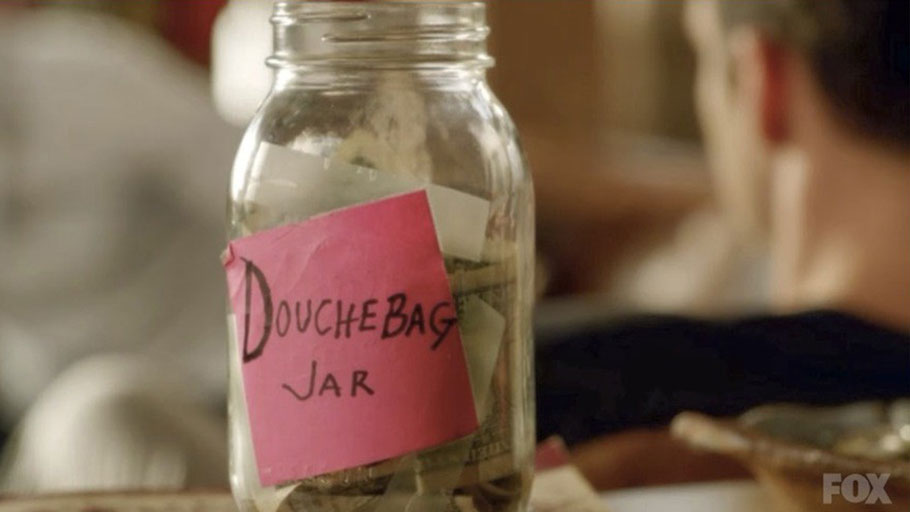
Pay up douchebag!
Absolutely! Our policy attack on social douchebaggery can begin with with taxes on yachts, segways and vacation homes. Are you a single dude with more than one car? Pay up. Do you ride to work on the google bus? You should pay taxes to San Francisco for the roads and bus stops your privatized mass transportation relies upon. Best of all, we can stop calling the threat to raise taxes on the rich “class warfare” and just start calling it the “douchebag tax.” That’s a ballot measure we can all get behind!
Do we really need a white racial slur? Is the vision of equality that we should aspire towards a world without the N-word or Douchebag? Maybe. Maybe it is. But as everyone who is not colorblind can plainly see, this is not yet that day.
For the time being, this is the vernacular critique of whiteness that we’ve always needed, and its been right before our eyes all along. The term douchebag, again used as we already use it, has the power to name white ruling class power and white sexist privilege as noxious, selfish, toxic, foolish and above all, dangerous.
Since the coming of colorblindness as the official ideology of neoliberal racism, we have needed a precise term with which to recognize and ridicule white privilege when we see it. So we should sharpen our critical swords and wield this insult with a new rapier like awareness, and thereby give the racists, the conservatives, and the 1% something they are always imagining anyways: reverse discrimination.
This article was originally published by the Medium.
Michael Mark Cohen teaches American Studies and African American Studies at UC Berkeley. He is the author of The Conspiracy of Capital: Law, Violence and American Popular Radicalism in the Age of Monopoly (UMass Press, 2019). Follow him on twitter at @LilBillHaywood and check out his archive of radical cartoons at www.cartooningcapitalism.com.

